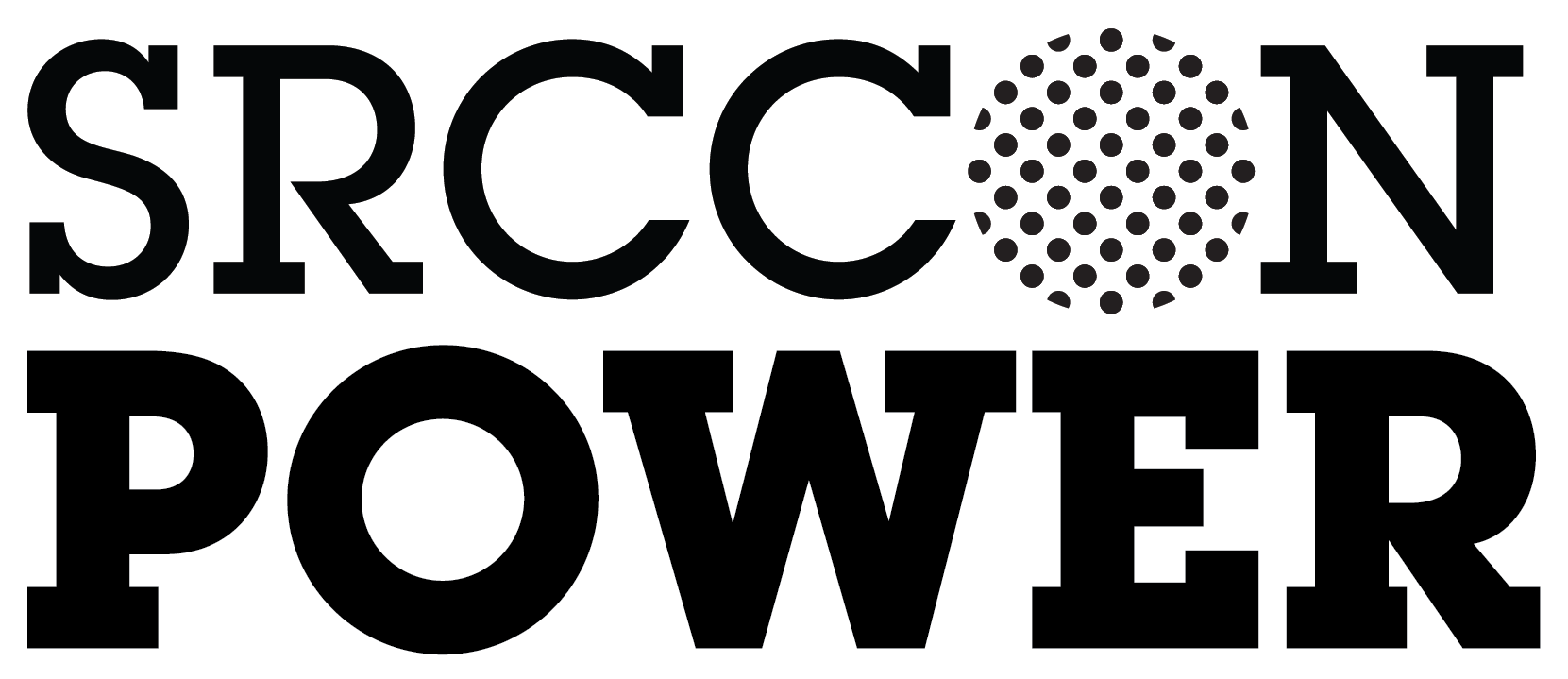About Sessions at SRCCON:POWER
SRCCON:POWER is built around two days of talks, peer-led conversations, and hands-on workshops. The community members who step up to participate in and facilitate these sessions make it all possible. They bring their experience with a topic as well as the questions they haven’t answered, and guide conversations and collaborative work that helps everyone head home with new ideas.
Our program for SRCCON 2018 will investigate how power operates in our newsrooms, in our relationships with communities, and in the algorithms and technologies that are reshaping our work. Through sessions, we will work together to understand the power and responsibility we have in using technology to inform and engage.
The sessions on our schedule are proposed and led by community members who want to lead conversations or develop new resources to share. Successful sessions often emerge from a single question or problem—if you’ve been struggling with just about any aspect of your work, you can bet others have dealt with it, too.
How Do Collaborative Sessions Work?
There are a lot of ways to think about the SRCCON:POWER program, but here’s the most important thing to know: our sessions are highly collaborative. With peer-led SRCCON:POWER sessions, we’ll discuss ways we can work collectively to shift power dynamics at the intersection of journalism and tech. We want to build plans, devise strategies, and use this time to further strengthen work that’s already happening to increase equity and inclusion in journalism. OpenNews staff are available to support facilitators in planning their sessions and in implementing next steps after the event, too.
We want to make this a genuinely participatory event, and it’s hard to be part of a conversation or work together in a session that’s mostly lecture. So we look for sessions that include real interactivity, and we love creative formats that support learning. Outstanding sessions might include design exercises, art and games, small-group work, role playing, even field trips—and we’re always interested in new ideas.
SRCCON:POWER sessions last 75 minutes, and we encourage facilitators to think about outlines and information density. Overprogramming a session with too many activities can make it hard to reach a satisfying goal—but a session that’s underdesigned can easily turn into a conversation between a handful of the loudest people. We’re happy to help facilitators figure out the right balance.
What Does a Session Facilitator Do?
Effective SRCCON:POWER facilitation is about effort and preparation more than expertise. Our facilitators plan and guide sessions, ask great questions, share what they know, and learn from their peers. We find that the best sessions are often led by facilitators who:
- have a clear outcome in mind—what you want people to leave with,
- know what they can realistically cover in the time allotted,
- build a clear outline for the session, but deviate from it as needed,
- actively seek to run balanced, inclusive conversations, and
- make a few simple backup plans in case a session gets a larger or smaller audience than expected.
If that sounds like a lot of effort…it is! But it also means that people who are brand-new to the community—or to a topic—can make excellent facilitators if they’re willing to put in a little prep time. We provide group and one-on-one support to help facilitators prepare for their sessions, and we can help match you with a co-facilitator if you’d like to work with someone else.
Sessions From Previous SRCCONs
To give you a taste of how facilitators have turned their plans into action, here are a some writeups from previous participants on their experience hosting sessions:
- 3 Ways To Facilitate A Great Conference Session, by ProPublica’s Sisi Wei
- How We Facilitated A Huge, Participatory, Highly Charged SRCCON Session, by NPR’s Alyson Hurt
- Teaching and Brainstorming Inclusive Technical Metaphors, by Vox Product’s Nicole Zhu
- Stuck in a Rut? Tackle Newsroom Frustrations With Board Games, by Sara Konrad Baranowski of the Iowa Falls Times Citizen and Andrea Suozzo of Vermont’s Seven Days
We also archive each conference site and schedule, so if you’d like to take a look back at the topics we’ve tackled before, dig in!
